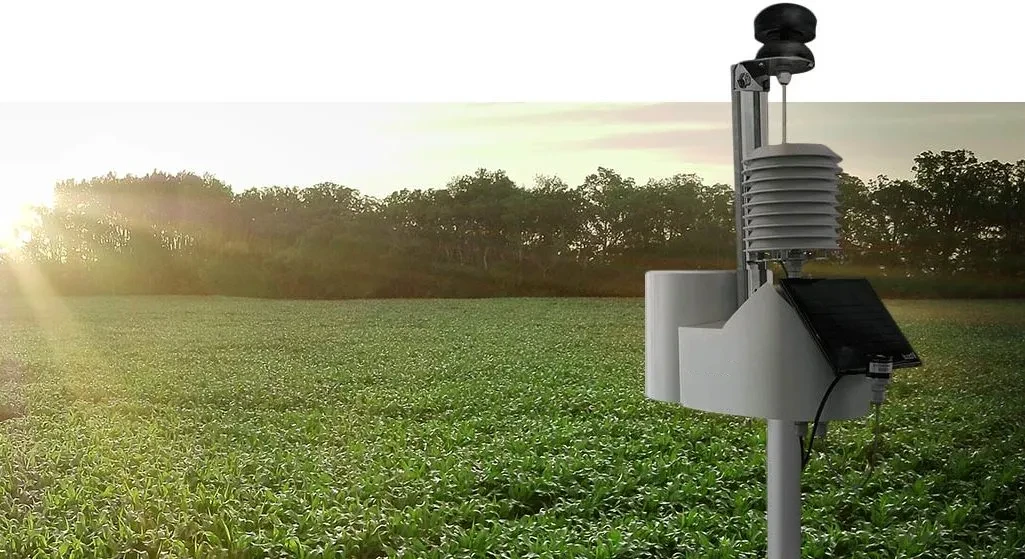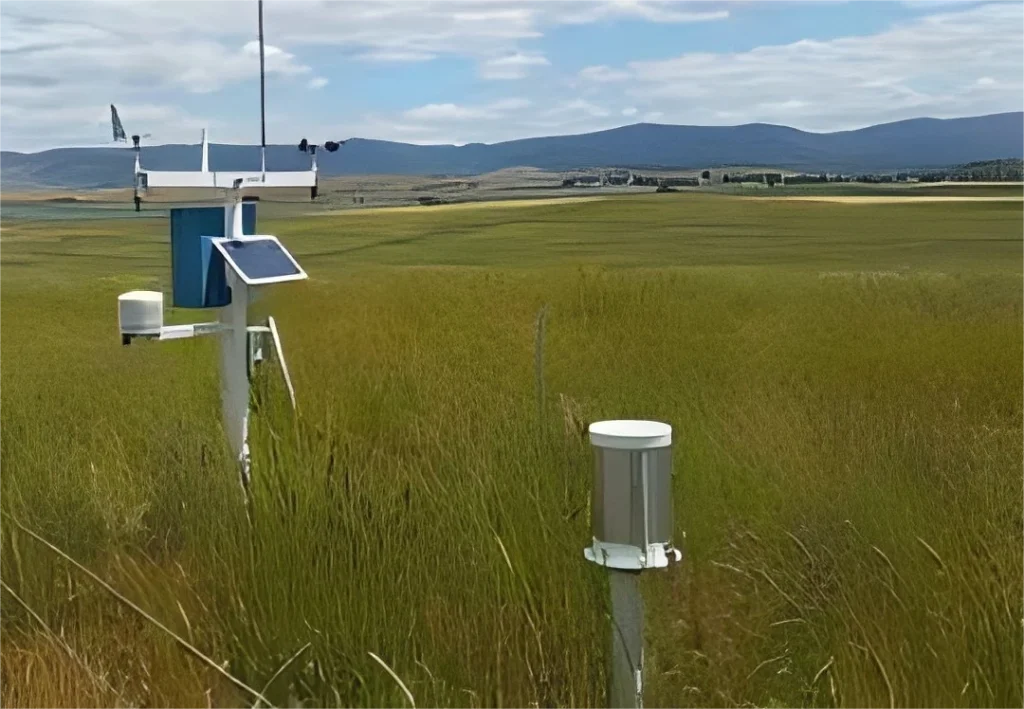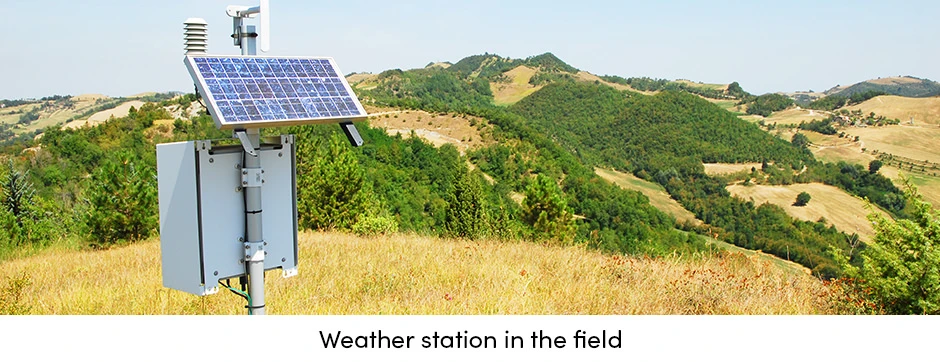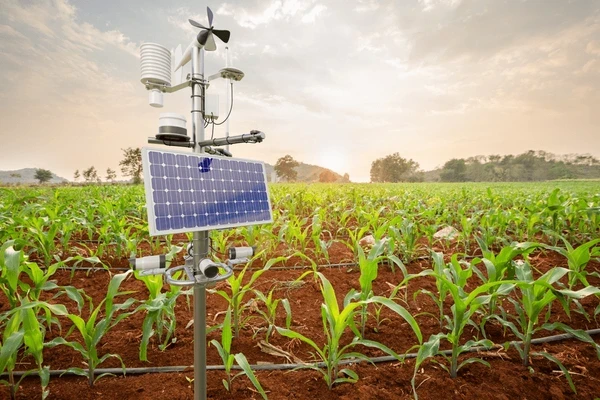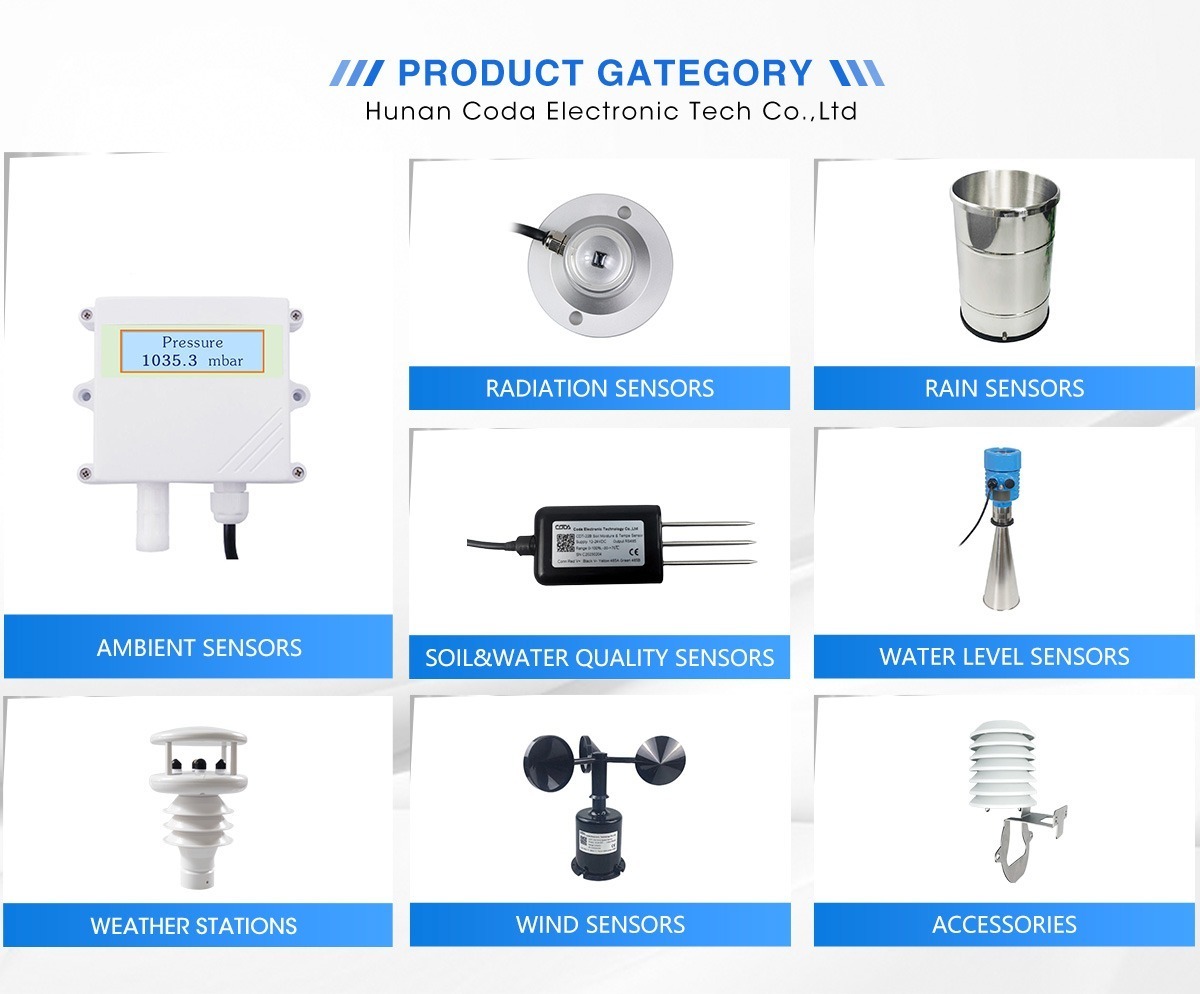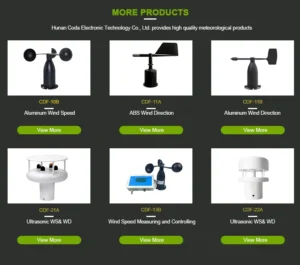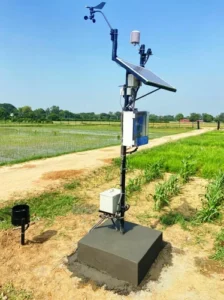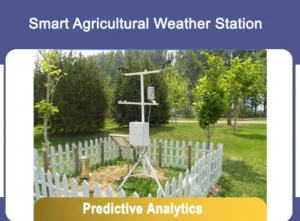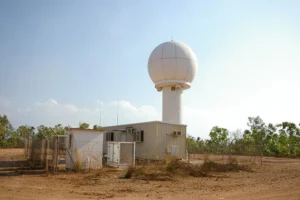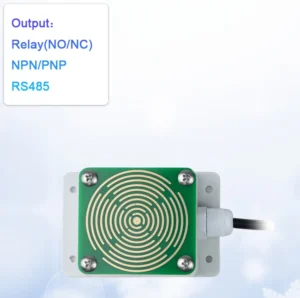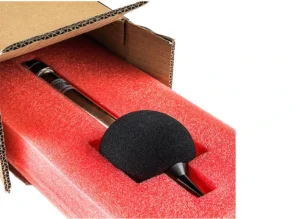The Importance of Weather Stations in Agriculture
Agricultural weather stations are important for monitoring crop growth. Crop growth is affected by both internal and external factors. Plant genetics are the internal factors. External factors include climate and soil conditions.
External factors greatly affect how much food we can grow. Studies show that nearly half of farming depends on the climate.
The Role of Weather Stations in Modern Farming
Historically, it has been hard to give accurate weather forecasts for farming. Unpredictable events like heavy rain, floods, extreme heat, and strong winds can cause big losses in agriculture.
Weather reports from traditional agencies often lack the accuracy needed to prevent problems. This makes farmers vulnerable and unable to reduce damage. However, new farm-level weather stations have changed how farmers monitor and respond to weather changes.
Weather stations today provide a smart and effective way to track daily weather changes. Depending on what you need to monitor, different types of weather stations are available. Some important atmospheric and soil measurements taken by these tools include:
– Rainfall levels
– Relative humidity (RH)
Local climate data is important for managing field work. It helps with tasks like scheduling irrigation. It also helps find the best times for fertilizing and spraying. Additionally, it helps decide when to plant or harvest crops.
With this information, farmers can get ready for bad weather, like heavy rain, strong winds, and temperature changes. They can also deal with pest and disease problems. Weather stations provide important data to help fight frosts in winter and manage high summer heat.
Many modern stations have advanced sensors for pests and diseases. These sensors send alerts to farmers quickly. This helps farmers act before infestations spread.
The stations come in different models. These models fit various needs, from pest control to disease prediction. They are useful tools for today’s agriculture.
Enhancing Soil Management with Weather Stations
Using soil moisture sensors with weather stations helps farmers work better. These devices measure soil temperature, moisture, and pH. pH shows how acidic or alkaline the soil is. Understanding these factors helps farmers know the best time to plant crops.
This is especially true in dry areas where rain and soil moisture matter a lot. Also, understanding soil conditions helps apply water and fertilizers accurately. This saves resources and improves the quality of the harvest.
Weather stations help lower environmental risks that can hurt crop growth. They do this by checking climate and soil conditions, which are often not controlled.
Farmers do not have to be in the fields to check water needs or find disease outbreaks. They get alerts on their mobile devices. This helps them make smart decisions from far away.
Combating Climate Change with Advanced Tools
As worries about climate change grow, weather stations are very important. They help with unpredictable weather patterns and give farmers helpful information. This allows farmers to adjust and thrive in a changing environment.
Key Benefits of Using Weather Stations in Agriculture
1. **Efficient Farm Operations:**
Weather stations help plan farming activities more accurately.
2. **Optimal Planting and Harvesting:**
By predicting rainfall, air and soil temperature, and moisture, farmers can find the best times to plant or harvest.
3. **Irrigation Management:**
Weather data makes it easier to decide when and how much water crops need.
4. **Fertilization & Spraying:**
Good timing for these processes reduces waste and increases effectiveness.
5. **Frost Protection:**
Predicting frosts helps farmers take action to protect their crops from damage.
6. **Safe Transportation & Storage:**
Weather insights help plan the best time for food storage or transport. This helps avoid spoilage.
7. **Cultural Practice Optimization:**
You can plan tasks like plowing, raking, and farming better by checking the weather.
8. **Pest & Disease Prediction:**
Advanced sensors help find pest or disease risks early using predictive models.
9. **Livestock Protection:**
Alerts help farmers protect their livestock during bad weather, such as rain or hailstorms.
Weather stations help farmers get the information they need to manage their fields better. With accurate climate data, farmers can reduce uncertainties. This helps them use resources wisely, increase productivity, and protect their livelihoods. They face many challenges from a changing climate.
